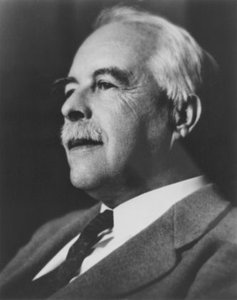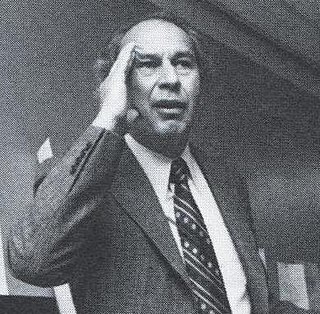A Quote by Gilbert N. Lewis
The scientist is a practical man and his are practical (i.e., practically attainable) aims. He does not seek the ultimate but the proximate. He does not speak of the last analysis but rather of the next approximation. His are not those beautiful structures so delicately designed that a single flaw may cause the collapse of the whole. The scientist builds slowly and with a gross but solid kind of masonry. If dissatisfied with any of his work, even if it be near the very foundations, he can replace that part without damage to the remainder.
Quote Topics
Aims
Analysis
Any
Approximation
Attainable
Beautiful
Builds
Cause
Collapse
Damage
Designed
Dissatisfied
Does
Even
Flaw
Foundations
Gross
His
Kind
Last
Man
Masonry
May
Near
Next
Part
Practical
Practically
Rather
Replace
Scientist
Seek
Single
Slowly
Solid
Speak
Structures
Those
Ultimate
Very
Whole
Without
Work
Related Quotes
When Arthur Ashe plays tennis, his purpose each day is to play the game in a way he has never played it before. It may be a backhand he uses, one that he may never have used before in that circumstance. His play is a fresh integration of his world at the instant of action. A really great scientist has the whole past at his disposal. At any instant he is rebuilding the world, molecule by molecule, in his subconscious. That is what you want in an athlete or a scientist.
The wise man does nothing but what can be done openly and without falseness, nor does he do anything whereby he may involve himself in any wrong-doing, even where he may escape notice. For he is guilty in his own eyes before being so in the eyes of others; and the publicity of his crime does not bring him more shame than his own consciousness of it.
The good designer aims at a perfect fusion of the various considerations which enter into his design. He aims at an untortured unity-a direct whole. He arranges his levels consciously or subconsciously, adhearing to the requisites of the problem he is asked to solve or to his own inclination. Some designers see total act through a disc of aesthetic considerations-others, more practical minded, may put economic considerations at top level.
It is God's earth out of which man is taken. From it he has his body. His body belongs to his essential being. Man's body is not his prison, his shell his exterior, but man himself. Man does not "have" a body; he does not "have" a soul; rather he "is" body and soul. Man in the beginning is really his body. He is one. He is his body, as Christ is completely his body, as the Church is the body of Christ
How often people speak of art and science as though they were two entirely different things, with no interconnection. That is all wrong. The true artist is quite rational as well as imaginative and knows what he is doing; if he does not, his art suffers. The true scientist is quite imaginative as well as rational, and sometimes leaps to solutions where reason can follow only slowly; if he does not, his science suffers.
Scientific discovery is a private event, and the delight that accompanies it, or the despair of finding it illusory, does not travel. One scientist may get great satisfaction from another's work and admire it deeply; it may give him great intellectual pleasure; but it gives him no sense of participation in the discovery, it does not carry him away, and his appreciation of it does not depend on his being carried away. If it were otherwise the inspirational origin of scientific discovery would never have been in doubt.
A man's real faith is never contained in his creed, nor is his creed an article of his faith. The last is never adopted. This it is that permits him to smile ever, and to live even as bravely as he does. And yet he clings anxiously to his creed, as to a straw, thinking that that does him good service because his sheet anchor does not drag.
When a young person, even a gifted one, grows up without proximate living examples of what she may aspire to become--whether lawyer, scientist, artist, or leader in any realm--her goal remains abstract. Such models as appear in books or on the news, however inspiring or revered, are ultimately too remote to be real, let alone influential. But a role model in the flesh provides more than inspiration; his or her very existence is confirmation of possibilities one may have every reason to doubt, saying, 'Yes, someone like me can do this.
Using any reasonable definition of a scientist, we can say that 80 to 90 percent of all the scientists that have ever lived are alive now. Alternatively, any young scientist, starting now and looking back at the end of his career upon a normal life span, will find that 80 to 90 percent of all scientific work achieved by the end of the period will have taken place before his very eyes, and that only 10 to 20 percent will antedate his experience.






































